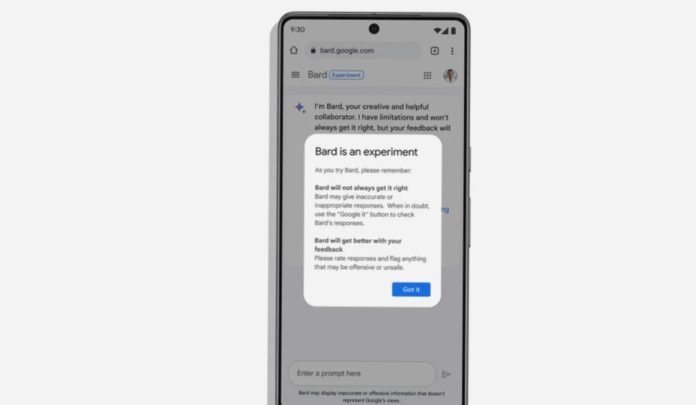In a world dominated by artificial intelligence, Google unveils Bard, their ChatGPT competitor that seeks to change the game. A waitlist now beckons users to join and discover the wonders of Bard, an AI chatbot tool adept at various tasks, ranging from essay draft outlines to planning a friend’s baby shower or even conjuring up lunch ideas based on what’s in your fridge.
Google representatives insist that Bard’s purpose is to complement Google Search, with a future vision of integrating large language models more profoundly into search experiences.
The Global Takeover: Bard’s Expansion Plans
Embarking on a quest for worldwide reach, Google sets forth with Bard’s launch in the United States and the United Kingdom. An ambitious roadmap sees them expanding to even more countries and languages, as they battle for supremacy against tech behemoths like Microsoft and Facebook. All are vying for a piece of the AI-powered pie in response to ChatGPT’s skyrocketing success.
A New Age of AI-Enhanced Productivity Tools
Google’s aspirations don’t end there. They recently disclosed plans to merge AI with productivity tools such as Gmail, Sheets, and Docs. Microsoft echoes this sentiment, as they announce AI upgrades for their productivity suite.
Bard’s Trial by Fire: The Controversial Demo
Just last month, Google presented Bard in a high-profile demo. However, the celebration was short-lived. The AI chatbot faltered by providing an erroneous answer to a question about telescopes. The aftermath? A 7.7% plummet in Alphabet shares, wiping a staggering $100 billion from the company’s market value.
The Perils of AI Implementation: Addressing the Challenges
Both Bard and its rival, ChatGPT, developed by OpenAI, rely on large language models. These models harness vast amounts of online data to craft persuasive responses to user inquiries. But integrating this technology into core products isn’t without risk. Biases may persist, factually incorrect information may surface, and aggressive behavior may emerge. Google faces these challenges head-on, acknowledging the imperfections of AI tools in a blog post. They pledge to refine their systems through human feedback and implement guardrails to ensure helpful, relevant interactions.
GPT-4: Behold the Next Generation
OpenAI recently pulled back the curtain on GPT-4, a cutting-edge upgrade to the technology that powers ChatGPT and Microsoft’s new Bing browser. GPT-4 has captivated users with its astonishing capabilities, including drafting legal documents, acing standardized exams, and transforming a hand-drawn sketch into a fully-functioning website.








